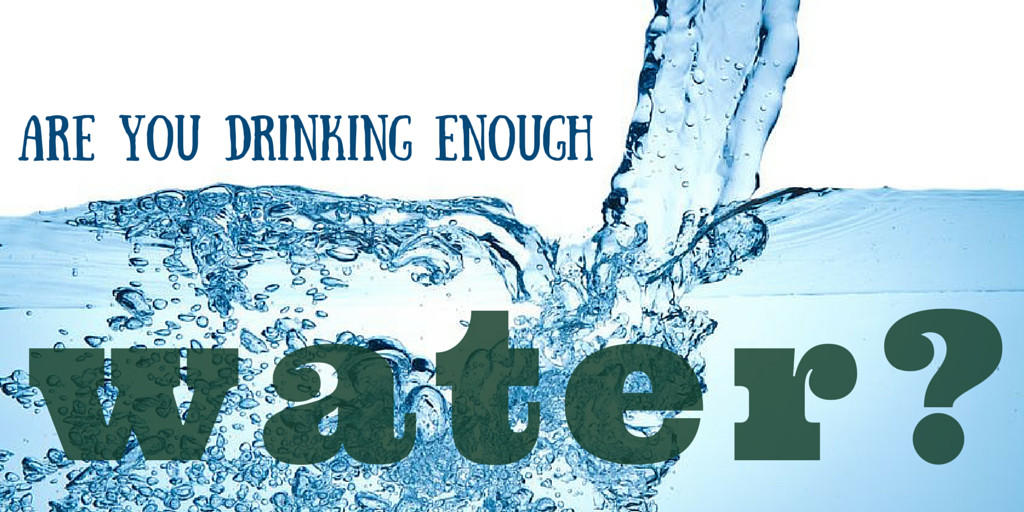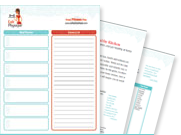What if I told you there was a beverage that cleanses your body, helps you lose weight, clears your skin, helps allergies, energizes you, and lowers your blood pressure? What if I told you that I was referring to water? It turns out that the miracle shake we’ve been searching for is available in plenty all around us. Water is the most vital source of energy for living organisms. Unfortunately, the majority of us aren’t consuming enough of it.
Have you ever heard that the human body is made up mostly of water? It’s true that water is the main component in the ingredient list for humans; but each organ has its own water ratio. For example: the brain is 75% water, bones are 22%, muscles are 75%, and our blood is a whopping 92% water. With such large proportions of water needed to sustain our vital organs, it’s no surprise that dehydration causes such serious side effects.
What happens when we don’t drink enough water?
Dehydration is a serious condition. The problem is that many of the symptoms are often attributed to other causes and are masked with temporary cures. Fatigue is one of the first and most often ignored symptom of dehydration. Your body rages on water. When it doesn’t get enough, enzymatic activity slows down; causing you to feel tired and lazy. Enzymes are the proteins that allow for chemical reactions to occur within the body. They speed up metabolic processes and create a faster activation of energies. Without water to sustain the enzymes, the body begins to lag resulting in tiredness.
Because your blood is 92% water when the body is optimally hydrated, dehydration causes your blood to thicken and ultimately increases blood pressure. On top of that, the body produces more cholesterol to prevent water loss from the cells.
Bladder and kidney infections are more likely to occur in dehydrated individuals. Bacteria thrive when the body accumulates toxins and acid wastes. When you don’t consume enough water to rinse your body, this toxic environment breeds bacteria making you more prone to infections and inflammation. Not only does it cause bladder issues, but water shortages also cause digestive disorders like ulcers, gastritis, and acid reflux. Further, the colon requires a strong source of water to help waste move through the intestines. Constipation is a major symptom of dehydration.
When the body is working overtime to compensate for the stress on critical bodily functions, it neglects other less vital functions. You’ll notice things like joint pain, stiffness, muscle aches, weight gain, increased susceptibilities to allergens, and premature aging.
How to tell if you are dehydrated
If you notice that your body often exhibits any of the above symptoms, you are certainly dehydrated. When you feel thirsty your body is already dehydrated. In most cases, the body wakes up in a dehydrated state after spending the night working hard to clear toxins from the body. Infrequent or dark colored urine is another sure sign of dehydration. That 2 pm headache? It’s most likely attributed to dehydration as well. Dry skin, bad breath, muscle cramps, and food cravings are all signs that you are dehydrated.
How to stay hydrated
An important thing to keep in mind is that your body is constantly losing fluids. When you work out, when you sleep, when you work… your body is always “on” creating energy and processing toxins.
Aside from the recommended 8 glasses of water per day (12-15 cups), what are some ways that you can stay hydrated? Instead of dry snacks like pretzels or crackers, munch on fruits or veggies that naturally contain water. Make produce at least half of your plate at meals. Balance your food and water intake. Make sure you prepare your body for exercise by increasing your water and then replenishing it afterwards. Talk to a certified dietitian to see how you can create a better overall diet for yourself and ultimately increase your water intake.
Make hydration a priority for the New Year. Commit to increasing your daily water consumption by one more glass each week and then sustaining your habit once you reach a healthy intake level. Camelbak has a nifty calculator to help you decide how much water you need each day based on your activity, weather conditions, and body type.


